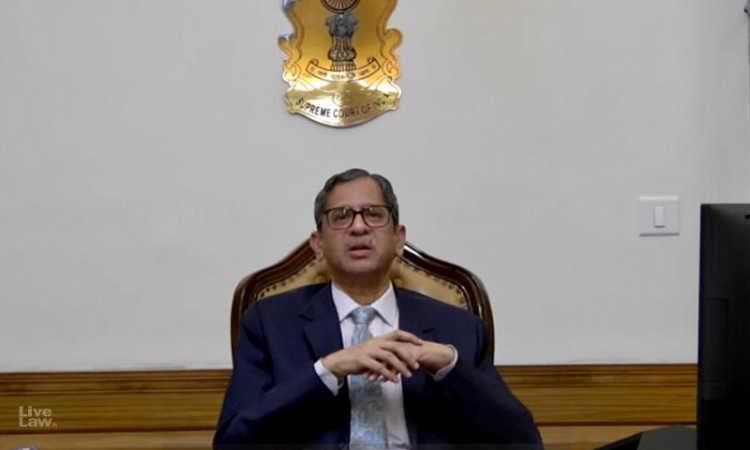Mere Right To Change Ruler Need Not Be A Guarantee Against Tyranny : CJI Ramana
LIVELAW NEWS NETWORK
1 July 2021 9:52 AM IST

Next Story
1 July 2021 9:52 AM IST
The Chief Justice of India NV Ramana on Wednesday said that a mere right to change ruler once every few years need not be a guarantee against tyranny."The idea that people are the ultimate sovereign is also to be found in notions of human dignity and autonomy. A public discourse, that is both reasoned and reasonable, is to be seen as an inherent aspect of human dignity and hence essential to...
